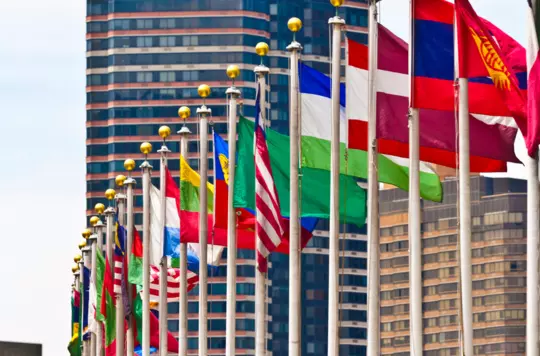1 February 2023
Injustice is everywhere. Where do we start?
Major Nick Coke

Major Nick Coke considers how to seek justice in a society longing for reconciliation.
I often joke that ‘territorial co-ordinator for justice and reconciliation’ is the best-sounding job title in The Salvation Army. After all, who doesn’t believe that we could do with a little more justice and reconciliation in our world? That’s the easy bit! The difficult bit is making sense of these concepts in the contested space of public life today.
The year has started with a fresh round of strikes over public sector pay, news of hospitals unable to cope with demand, rises in the cost of living, growing inequality between rich and poor, continued war in Europe and more.
There appears to be injustice wherever we look. We encounter it in our news feeds, in our communities and in the circumstances of those seeking our help. We live in a society longing for reconciliation and we ask ourselves, ‘Where do I start?’
With deep political divides lurking beneath the surface, public justice-seeking feels a frightening and foolhardy thing to attempt. And yet we feel the weight of our calling as The Salvation Army pushing us beyond our comfort zone to go and do something.
I want to suggest some starting points for public action that I believe are important.
Let's remember who we are
We are not service providers but participants in the mission of God. As a church we declare that ‘Jesus is Lord’ (Romans 10:9). Often, we reduce this to the private sphere, making this about personal salvation and individual faith, but living with this truth should never be hidden away at the personal level only. It is, in fact, a public truth that we attest to, and it has public consequences.
When we declare ‘Jesus is Lord’, it is a truth for every aspect of our world – personal, social, economic, political and environmental. Nothing is exempt. This is the beginning of what it means to seek justice and reconciliation.
Let’s attempt to be the change we want to see
The basic unit of a society built under the lordship of Christ is the local congregation. Theologian Lesslie Newbigin writes: ‘The local congregation is not a branch of the universal Church, but it is the place where the universal Church is made visible.’
The work of justice and reconciliation must find its place inside Salvation Army expressions. When this happens, it will spill out into public life with integrity.
Let's get political
Of course, I don’t mean party political, as we are non-partisan. Rather, I mean exercising the politics of the Kingdom of God in public life.
Jesus gave us plenty to be working on – resisting the power of money (Matthew 6:24), loving your enemy (Matthew 5:43–48), welcoming the stranger (John 4:4–26), freeing the oppressed (Luke 4:18 and 19). These actions are not just for individuals. They have systemic consequences at a local, regional, national and international level. In fact, they speak directly into the injustices we see around us, they challenge the world as it is, and they make demands on how we live our lives.
Reflect and respond
- What are the personal consequences of believing Jesus is Lord?
- What are the public and political consequences of believing Jesus is Lord?
- Read Matthew 5:3–10, Matthew 25:31–46 or Luke 4:16–21. How does the passage shape the way you seek justice and reconciliation in your area of influence, both personally and systemically?
Written by
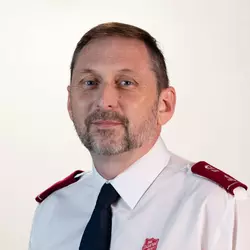
Major Nick Coke
Territorial Co-ordinator for Justice and Reconciliation, THQ
Discover more
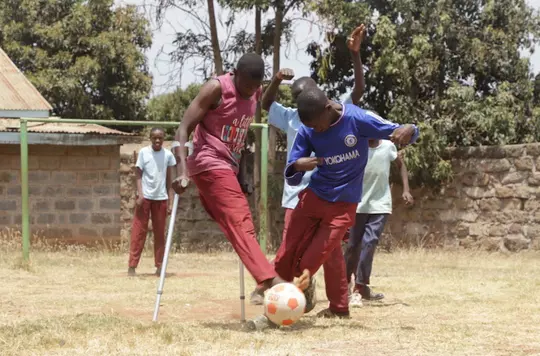
Benjamin Gilbert explains the differences and links between the Army’s two major international appeals.
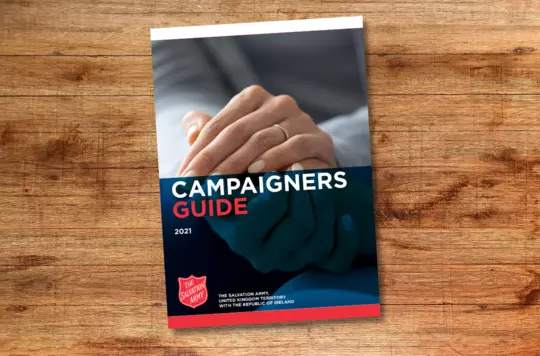
Public Affairs Officer Chris Hartley introduces a new opportunity for Salvationists.
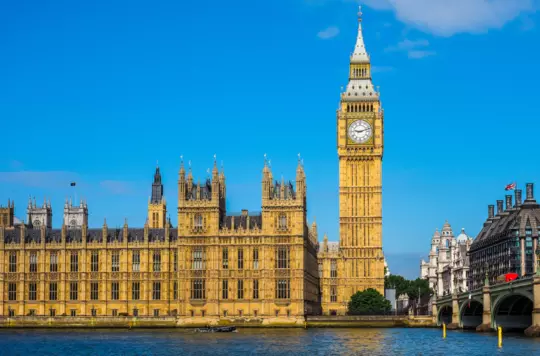
We speak into areas of public policy to support change for the benefit of some of the most disadvantaged people in our communities.
